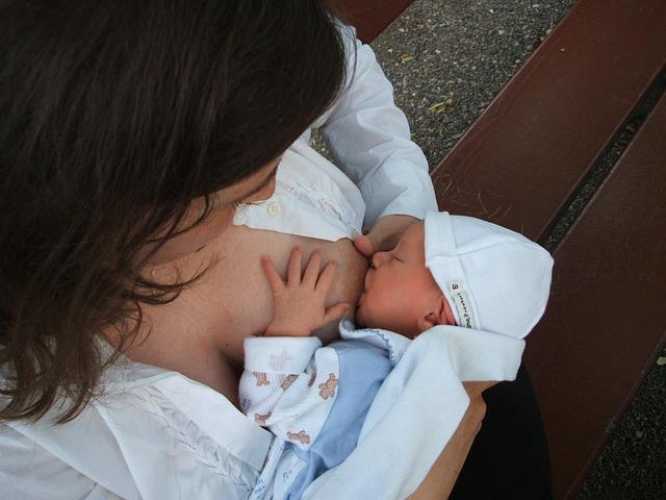Welcome to the wild and wonderful world of parenting! If you’ve just welcomed a little bundle of joy or you’re gearing up for the adventure ahead, one thing’s for sure-baby health care can sometimes feel like trying to decode a secret language. From sleepless nights to those mysterious rashes, every new parent faces their fair share of questions and worries. But don’t sweat it! We’ve put together a handy list of top tips every parent should know to keep your baby happy, healthy, and thriving. think of this as your go-to cheat sheet for navigating those early days with confidence and a little bit of calm. Let’s dive in!
Choosing the right Nutrition for Your Baby’s Growth
When it comes to nurturing your little one, nutrition plays a starring role in supporting healthy advancement. from birth through the first year, your baby’s dietary needs evolve rapidly. Breast milk or formula provides a perfect balance of vitamins and nutrients initially, but as your baby grows, introducing solid foods becomes essential. Focus on whole, nutrient-dense options like mashed avocados, steamed carrots, and pureed sweet potatoes to gently expand their palate. Remember, it’s not just about feeding but also about building a positive relationship with food.
Here are some practical pointers to keep in mind:
- Diversify textures: Start with smooth purees, then progress to lumpy and soft finger foods.
- Keep allergies in check: Introduce new foods one at a time and watch for reactions.
- Offer variety: different fruits, veggies, grains, and proteins ensure a balanced intake.
- Hydration matters: Small sips of water support digestion as solids increase.
| Age (Months) | Recommended nutrition | Sample Foods |
|---|---|---|
| 0-6 | Milk onyl | Breast milk, formula |
| 6-8 | Introducing solids | Pureed veggies, rice cereal |
| 8-12 | Mixed textures | Mashed fruits, soft finger foods |
Creating a Safe and Cozy Sleep Environment
Ensuring your little one has a snug and secure spot to sleep is a game-changer for their health and your peace of mind. start by choosing a firm mattress that fits snugly in the crib – no gaps! Avoid soft bedding, pillows, or toys inside the crib to prevent any accidental suffocation. Keep the room temperature cool but cozy, ideally between 68-72°F (20-22°C), since babies can’t regulate their body heat well. Blackout curtains or soft nightlights can help create a calming atmosphere that supports their natural sleep cycles.
Organizing the nursery with safety in mind also means keeping cords,blinds,and curtain strings out of reach. Use breathable, organic cotton sleep sacks rather of blankets to keep your baby cozy without risk. Here’s a rapid cheat sheet to get your nursery perfectly baby-safe:
| Item | Tip |
|---|---|
| Crib Mattress | Firm & fits perfectly |
| Bedding | No pillows or heavy blankets |
| Room Temperature | Keep between 68-72°F |
| Lighting | Soft nightlight or blackout curtains |
| Sleepwear | Use wearable blankets/sleep sacks |

Recognizing Common Baby Illnesses and When to Call the Doctor
Babies can’t tell us when they feel unwell, so it’s essential to keep an eye out for signs that suggest something might be off. Common illnesses like colds, mild fevers, or diaper rashes are frequently enough manageable at home, but knowing the subtle clues helps prevent escalation. watch for symptoms such as persistent crying, difficulty feeding, unusual lethargy, or rashes that spread quickly. Trust your instincts-if your little one seems “off” or symptoms worsen, it’s always better to err on the side of caution.Keep a health journal to track patterns and quickly spot changes.
Here’s a quick reference to guide you when deciding if a doctor’s visit is necessary:
| Symptom | When to Call the Doctor |
|---|---|
| Fever over 100.4°F (38°C) | If younger than 3 months or lasts more than 2 days |
| Persistent vomiting or diarrhea | If lasting over 24 hours or signs of dehydration |
| Breathing difficulties | wheezing, fast breathing, or chest retractions |
| Seizures or extreme irritability | Immediate medical attention needed |
- Keep emergency contacts handy-pediatrician, nurse hotline, and nearest urgent care.
- Don’t wait if something feels wrong; babies can deteriorate quickly.
- Maintain a clean environment to prevent infections and illnesses.
Easy Everyday Habits to Boost Your Baby’s Immune System
Building your little one’s defenses doesn’t have to be intricate. Simple daily routines can go a long way in keeping your baby’s immune system strong and ready to fight off common bugs. make sure your baby gets plenty of breastmilk or iron-fortified formula,as these provide essential antibodies and nutrients. Regularly washing your baby’s hands and keeping toys clean reduces exposure to germs while allowing their immune system to gradually learn and adapt. Don’t forget the power of fresh air-daily tummy time outside, even just for a few minutes, can boost vitamin D levels which are crucial for immune function.
Introducing a variety of wholesome foods at the right age also plays a key role. Here’s a quick guide to some immune-kind foods you can consider when your baby begins solids:
| Food | Key Benefit |
|---|---|
| Sweet Potatoes | High in beta-carotene for immune support |
| Spinach | rich in vitamins A, C, and folate |
| Blueberries | Packed with antioxidants |
| Yogurt | Probiotics for gut health |
Alongside food and hygiene, maintaining a consistent sleep schedule helps your baby’s body regenerate and keeps their natural defenses in peak condition. Remember, your calm and loving vibe is a huge booster all on its own!
Q&A
Q&A: Top Tips Every parent Should Know for Baby Health Care
Q: What’s the best way to keep my baby healthy in those first few months?
A: First off, lots of cuddles and love! Beyond that, regular breastfeeding (if you can), keeping up with vaccinations, and ensuring a safe sleep environment are key. Don’t forget frequent hand washing-germs love babies as much as we do!
Q: How frequently enough should I bathe my baby?
A: You actually don’t need to give daily baths. Two or three times a week is perfect to keep their skin from drying out. Just wipe their face,neck,and diaper area daily,and use mild,fragrance-free baby soap when you do bathe them.
Q: My baby has a fever-when should I be worried?
A: If your little one is under three months and has a fever over 100.4°F (38°C), call your pediatrician right away. For older babies, keep an eye on behavior-if they’re unusually sleepy, fussy, or have trouble feeding, reach out to your doctor.
Q: How do I prevent diaper rash?
A: Change diapers frequently to keep that area dry and clean. Use a gentle barrier cream and let your baby’s skin air out when possible. Avoid wipes with alcohol or fragrance-they can irritate sensitive skin.
Q: What about sleep-how can I help my baby sleep safely?
A: Always put your baby down on their back to sleep, on a firm mattress with no blankets or toys in the crib. A consistent bedtime routine helps, too-think gentle rocking, soft lullabies, and dim lights.
Q: Should I be worried about my baby’s weight gain?
A: Babies grow at their own pace, but your pediatrician will track their weight and length at checkups. If your baby is feeding well and meeting milestones, you’re probably on the right track. Don’t stress about the occasional growth spurt or slowdown.Q: How can I boost my baby’s immune system?
A: Breastfeeding offers amazing natural immunity. Beyond that, stick to the vaccination schedule, keep your baby away from sick people, and maintain a clean environment. Oh,and remember-some exposure to everyday germs helps build their defenses!
Q: When should I start introducing solid foods?
A: Around 6 months is the usual recommendation. Start with simple, mashed or pureed foods and watch closely for any allergic reactions.Always check with your pediatrician if you’re unsure.
Q: Any tips for soothing a fussy baby?
A: Babies cry,and sometimes it’s just as they need a little extra comfort. Try swaddling, gentle rocking, white noise, or a warm bath. And don’t be afraid to ask for help if you’re feeling overwhelmed-you’re not alone!
Q: What’s one thing every new parent should remember about baby health care?
A: Trust your instincts. You know your baby better than anyone. When in doubt, reach out to your healthcare provider. And remember, this phase is intense but will pass-take care of yourself, too!
In Retrospect
And there you have it-some simple yet super importent tips to keep your little one happy and healthy! Being a parent is no easy gig, but with a few smart moves and plenty of love, you’ve got this. Remember, every baby is unique, so trust your instincts and don’t hesitate to reach out to your pediatrician when you need a hand. Here’s to many joyful, healthy moments ahead with your bundle of joy! Stay awesome, parents!











